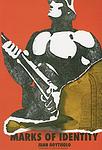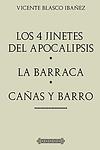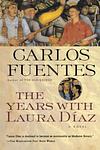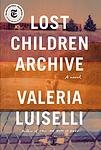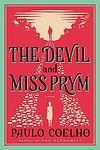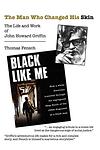The Greatest Brazilian, Mexican, Spanish "Social & Cultural Fiction" Books of All Time
Click to learn how this list is calculated.
This list represents a comprehensive and trusted collection of the greatest books. Developed through a specialized algorithm, it brings together 305 'best of' book lists to form a definitive guide to the world's most acclaimed books. For those interested in how these books are chosen, additional details can be found on the rankings page.
Genres
Social & Cultural Fiction is a literary category that encompasses novels and stories that delve into the complexities of society and culture, exploring themes such as class, race, gender, and identity within specific social contexts. These narratives often provide a lens through which readers can examine the intricacies of human relationships and the impact of cultural norms and societal structures on individuals and communities. By offering a fictional yet reflective portrayal of real-world social dynamics, this genre invites readers to gain a deeper understanding of the diverse experiences that shape our world. Authors in this category frequently use their characters and settings to comment on contemporary issues, challenge prevailing ideologies, and provoke thought about the possibility of social change, making Social & Cultural Fiction a powerful tool for empathy and a mirror for the ever-evolving human condition.
Countries
Date Range
Reading Statistics
Click the button below to see how many of these books you've read!
Download
If you're interested in downloading this list as a CSV file for use in a spreadsheet application, you can easily do so by clicking the button below. Please note that to ensure a manageable file size and faster download, the CSV will include details for only the first 500 books.
Download-
1. The Posthumous Memoirs of Bras Cubas by Machado de Assis
The novel is a unique and satirical work, narrated by a dead man, Bras Cubas, who recounts his life from beyond the grave. The story is filled with ironic humor and philosophical musings as Bras Cubas explores his past, his relationships, and the societal norms of his time. The narrative breaks conventional storytelling norms, often addressing the reader directly and jumping through time without warning. Themes of love, wealth, power, and the human condition are explored, providing a critique of 19th-century Brazilian society.
The 590th Greatest Book of All Time -
2. La Regenta by Clarín
"La Regenta" is a classic of Spanish literature that takes place in a small provincial town and centers around the character of Ana Ozores, a married woman who becomes the object of desire for two very different men: the town's liberal Casanova and a conservative, ambitious priest. The narrative explores themes of religion, hypocrisy, and forbidden love in a repressed society. The author's detailed depiction of the town and its inhabitants provides a vivid backdrop for the tragic love triangle that unfolds.
The 649th Greatest Book of All Time -
3. Like Water For Chocolate by Laura Esquivel
This novel is a romantic, magical realism tale set in turn-of-the-century Mexico. It chronicles the life of Tita, the youngest daughter in a traditional Mexican family, who is forbidden to marry due to a family custom that mandates the youngest daughter must care for her mother until death. Tita falls in love with Pedro, who in turn marries her elder sister to stay close to her. The story is uniquely structured around the twelve months of the year, each beginning with a traditional Mexican recipe. The protagonist's emotions become infused with her cooking, leading to strange effects on those who consume her culinary creations.
The 799th Greatest Book of All Time -
4. The Death of Artemio Cruz by Carlos Fuentes
The novel revolves around the life of a self-centered Mexican media mogul, Artemio Cruz, who is on his deathbed. As he reflects on his past, the narrative shifts between first, second, and third person perspectives, exploring different stages of Cruz's life from his impoverished childhood, his participation in the Mexican Revolution, his ruthless pursuit of power, and his eventual downfall. The book is a critique of the corruption and moral decay in Mexican society following the Revolution.
The 852nd Greatest Book of All Time -
5. The Burning Plain and Other Stories by Juan Rulfo
"The Burning Plain and Other Stories" is a collection of short narratives set in the harsh rural areas of Mexico, depicting the brutal realities of peasant life. The stories are filled with characters who are haunted by their past, living in extreme poverty, and often meeting violent ends. The book is renowned for its stark, realistic portrayal of life and its exploration of the human capacity for hope and survival in the face of despair.
The 974th Greatest Book of All Time -
6. The Underdogs by Mariano Azuela
"The Underdogs" is a novel set during the Mexican Revolution, depicting the conflict from the perspective of the peasants who fought in it. The story follows the journey of a poor, illiterate Indian named Demetrio Macias, who becomes a reluctant leader in the rebellion against the federal government. The narrative explores the brutality and chaos of war, the corruption of power, and the often futile nature of rebellion, painting a grim picture of the human cost of revolution.
The 1036th Greatest Book of All Time -
7. The House of Ulloa by Emilia Pardo Bazán
"The House of Ulloa" is a novel set in rural Spain during the 19th century, following the story of a young, idealistic priest sent to a decaying country estate to reform the marquis, who is a crude and corrupt nobleman. The priest's attempts at moral reform are thwarted by his love for the marquis' mistress and the cruel, primitive society that surrounds them. The book is a critique of the decaying nobility and the moral ambiguity of the Catholic Church.
The 1110th Greatest Book of All Time -
8. The Hive by Camilo José Cela
"The Hive" is a novel set in post-Civil War Spain, during the harsh years of Madrid's postwar recovery. It provides a gritty and realistic portrayal of the struggles faced by ordinary citizens in a society marked by deprivation and repression. The narrative is non-linear and fragmented, featuring a vast array of characters from various social classes, whose lives intertwine in a depiction of the bleakness and despair of the time. The book was initially banned in Spain due to its critical view of Franco's regime.
The 1264th Greatest Book of All Time -
9. The Time Of The Doves by Merce Rodoreda
The novel is a poignant exploration of a woman's life set against the backdrop of the Spanish Civil War and the early years of Franco's dictatorship. Through the eyes of the protagonist, a shopkeeper in Barcelona, readers experience her struggles with love, loss, and survival. Her personal journey is interwoven with the turbulent history of the era, as she endures the hardships of war, the complexities of her romantic relationships, and the challenges of raising her children alone. The narrative, rich with symbolic imagery, particularly the recurring motif of doves, offers a deeply emotional and intimate portrayal of resilience amidst the chaos of societal upheaval.
The 1600th Greatest Book of All Time -
10. Rebellion In The Backlands by Euclides da Cunha
This book offers a detailed and vivid account of the War of Canudos, a significant peasant revolt that took place in the late 19th century in the Brazilian backlands. Through a blend of historical documentation and narrative, the text explores the socio-political conditions that led to the uprising, the charismatic leadership of Antônio Conselheiro, and the brutal suppression of the rebellion by the Brazilian government. The author delves into the geography, culture, and lives of the backland inhabitants, providing a deep analysis of the conflict as a reflection of the broader struggles within Brazilian society. This work is not only a historical account but also a profound commentary on the themes of civilization versus barbarism, social injustice, and the complexities of national identity.
The 1602nd Greatest Book of All Time -
11. Veronika Decides to Die by Paulo Coelho
The novel centers around Veronika, a young woman from Slovenia who, disillusioned by her life and the world, decides to commit suicide. Surviving her attempt, she wakes up in a mental institution where she learns that her failed attempt has left her with only a few days to live. During her stay, she meets a variety of characters, each with their own mental issues, who help her to see her life in a new perspective. The story explores themes of madness, individuality, and the value of life, challenging societal norms and questioning the meaning of sanity.
The 1917th Greatest Book of All Time -
12. Bartleby & Co by Enrique Vila-Matas
"Bartleby & Co" is a metafictional work that explores the theme of "writers of the No," authors who cease to write or never start at all. The narrator, an office worker on sick leave, uses footnotes to a nonexistent text to delve into the stories of these authors, including famous real-life figures. The book serves as a meditation on silence, refusal, and the nature of literature itself.
The 2451st Greatest Book of All Time -
13. Memoirs of a Peasant Boy by Xosé Neira Vilas
"Memoirs of a Peasant Boy" is a poignant narrative about the harsh realities of rural life in Galicia, Spain during the early 20th century, as seen through the eyes of a young boy. The protagonist, who is also the narrator, offers a vivid depiction of his experiences growing up in poverty, dealing with oppressive landlords, and struggling for survival and education. This autobiographical novel is a powerful commentary on social injustice and the enduring spirit of the human will.
The 2454th Greatest Book of All Time -
14. Marks of Identity by Juan Goytisolo
This novel follows the life of Alvaro Mendiola, a Spanish man returning to his homeland after a long period of self-imposed exile in France. Through his experiences and memories, the narrative paints a vivid picture of the socio-political climate in Spain under Franco's dictatorship. As Alvaro grapples with his identity, the book explores themes of personal and national identity, exile, and the struggle for freedom.
The 2454th Greatest Book of All Time -
15. Tent of Miracles by Jorge Amado
"Tent of Miracles" is a satirical novel that explores the themes of racism, colonialism, and the power of knowledge. The story revolves around the life of a poor, mixed-race Bahian scholar who is unrecognized in his own land but becomes a posthumous celebrity when a Nobel laureate praises his work. This sudden fame brings attention to his writings and his message against racial discrimination, and the book also portrays the vibrant culture and diversity of Bahia, Brazil.
The 2454th Greatest Book of All Time -
16. Compassion by Benito Pérez Galdós
"Compassion" is a compelling narrative that explores the themes of poverty, compassion, and human morality. Set in 19th-century Spain, it follows the story of a wealthy woman who, after an encounter with a poor, blind beggar, is moved to reassess her life and the societal norms of the time. This chance meeting prompts her to question the established social order and her privileged position within it, leading to a profound personal transformation. This novel is a poignant exploration of human empathy and the societal structures that often hinder its expression.
The 2454th Greatest Book of All Time -
17. Here's to You, Jesusa! by Elena Poniatowska
This novel tells the story of Jesusa, a woman who experiences the Mexican Revolution, the Cristero War, and the development of the Institutional Revolutionary Party. Through her eyes, readers witness the struggles of poverty, the brutality of war, and the realities of a woman's life in early 20th century Mexico. The protagonist's life is filled with hardship, but she remains resilient, embodying the spirit of the Mexican people during a turbulent time in history.
The 2454th Greatest Book of All Time -
18. Gabriela, Clove and Cinnamon by Jorge Amado
Set in the 1920s in the Brazilian town of Ilhéus, the novel tells the story of a beautiful and charismatic migrant worker, Gabriela, who becomes a cook in the home of a wealthy bar owner. As the town, historically dominated by a few wealthy cacao planters, undergoes economic and social changes, Gabriela and her employer fall in love. Their relationship, however, is challenged by their different social statuses, the town's traditional values, and the employer's political ambitions. The story is a vivid portrayal of Brazilian culture, exploring themes of race, gender, class, and tradition versus progress.
The 2454th Greatest Book of All Time -
19. La Barraca by Vicente Blasco Ibáñez
This novel is a poignant portrayal of the struggles faced by a family who moves to the Valencian countryside to take over an abandoned farm, only to be met with hostility from the local community. The narrative delves into themes of social injustice, the harsh realities of rural life, and the relentless battle against nature's whims. As the family endeavors to cultivate the land and integrate into the community, they encounter resistance and sabotage from neighbors who resent their presence. The story is a vivid depiction of human resilience and the pursuit of hope amidst adversity, set against the backdrop of the fertile but unforgiving Spanish landscape.
The 2850th Greatest Book of All Time -
20. Doña Perfecta by Benito Pérez Galdós
This novel is a vivid portrayal of the clash between progress and tradition, set in a fictional Spanish town. The story centers around a young engineer who arrives with ideas of modernization and progress, only to find himself in conflict with the conservative and deeply religious values upheld by his aunt, the titular character, and the town's society. This conflict escalates into a dramatic struggle that exposes the hypocrisy, intolerance, and moral rigidity of the town, ultimately leading to tragic consequences. Through this narrative, the novel critiques the resistance to change and the destructive nature of fanaticism, reflecting broader social tensions within Spain during the 19th century.
The 2850th Greatest Book of All Time -
21. The Years with Laura Diaz by Carlos Fuentes
"The Years with Laura Diaz" is a historical novel that centers around the life of a woman named Laura Diaz, a member of the Mexican upper class. The book explores the political and social changes in Mexico throughout the 20th century, as seen through Laura's eyes. Her journey includes a loveless marriage, a passionate affair, and a career as a photographer during the Mexican Revolution. The story weaves together personal, political, and cultural threads, creating a rich tapestry of Mexican history and the indomitable spirit of its women.
The 3063rd Greatest Book of All Time -
22. Lost Children Archive by Valeria Luiselli
"Lost Children Archive" by Valeria Luiselli is a novel that follows a family on a road trip from New York to Arizona. The parents are documentarians and are working on separate projects, while the children are preoccupied with their own interests. As they travel, the family becomes increasingly aware of the migrant crisis and the children's obsession with finding lost things takes on a new meaning. The novel explores themes of family, identity, and the power of storytelling.
The 3719th Greatest Book of All Time -
23. A Light Comedy by Eduardo Mendoza
"A Light Comedy" is a humorous tale set in Barcelona during the 1940s, centered around a middle-aged woman who, after losing everything in the Civil War, uses her wits and cunning to survive. She turns her apartment into a boarding house for single ladies, but when the business starts to falter, she decides to concoct a plan to marry a rich American. The novel is filled with a colorful cast of characters, and is a satirical commentary on the social and political climate of the time.
The 4485th Greatest Book of All Time -
24. The Devil and Miss Prym by Paulo Coelho
A stranger arrives in the small town of Viscos, carrying with him a choice that could bless or curse the entire community. The town's inhabitants are forced to confront their deepest fears and question their moral compasses as they wrestle with the stranger's proposition: he will give them a fortune in gold if they kill one of their own. The stranger's presence stirs up chaos and brings to light the darkness within the human soul, challenging the townsfolk to make a decision that will determine their future.
The 4922nd Greatest Book of All Time -
25. A Change Of Skin by Carlos Fuentes
The novel explores the complex and surreal journey of a disillusioned Spanish historian who, along with his estranged wife, her American lover, and a Mexican guide, embarks on a metaphysical road trip across Mexico. As they confront personal and collective histories, the characters grapple with themes of identity, betrayal, and the search for meaning amidst the ruins of the Aztec and Spanish empires. The narrative weaves together reality and fantasy, questioning the nature of truth and the possibility of genuine transformation in a world where past and present are inextricably intertwined.
The 7193rd Greatest Book of All Time
Reading Statistics
Click the button below to see how many of these books you've read!
Download
If you're interested in downloading this list as a CSV file for use in a spreadsheet application, you can easily do so by clicking the button below. Please note that to ensure a manageable file size and faster download, the CSV will include details for only the first 500 books.
Download












